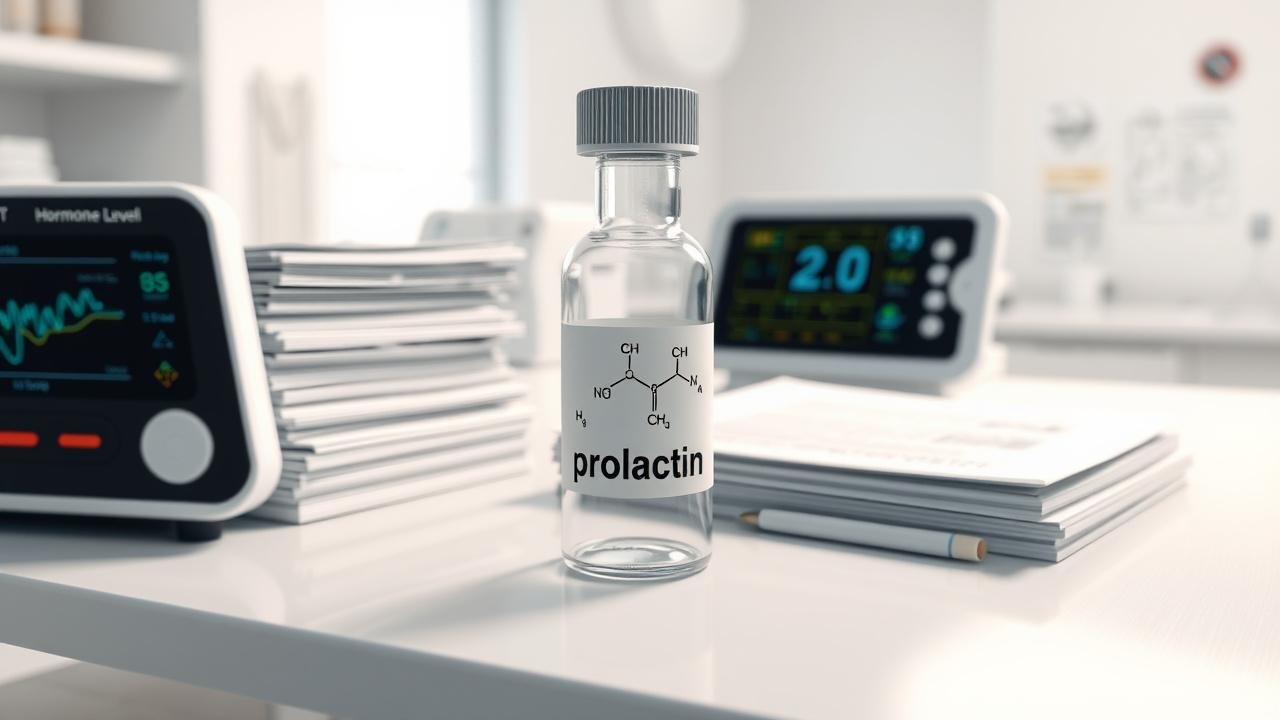Pregnancy and the months following birth bring profound hormonal shifts that can deeply impact a woman’s emotional landscape. From fluctuating estrogen and progesterone levels to changes in stress hormones like cortisol, these biological variations play a crucial role in mood swings experienced during this time. This blog explores key hormones such as thyroid hormones, neurotransmitters, oxytocin, and prolactin, revealing how each influences emotional well-being throughout pregnancy and postpartum. We’ll also examine long-term hormonal adjustments beyond birth and offer practical strategies for managing mood swings on this transformative journey.
The Role of Estrogen and Progesterone Fluctuations in Pregnancy Mood Swings
Estrogen and progesterone fluctuations play a central role in the mood swings experienced throughout pregnancy and after birth, acting as powerful modulators of brain chemistry and emotional responses. These hormones rise dramatically during pregnancy, influencing neurotransmitter systems responsible for mood regulation, as explored further in the section on neurotransmitter activity shifts. Their sudden decline postpartum can trigger emotional instability, often interacting with stress hormones like cortisol, which intensify feelings of anxiety or irritability. Understanding these fluctuations provides essential context for grasping how other hormonal changes—such as thyroid variations or prolactin adjustments—compound emotional challenges during this period. Moreover, estrogen and progesterone impact oxytocin release, linking hormonal shifts to bonding difficulties after delivery. Recognizing their role helps inform effective strategies for managing mood swings throughout pregnancy and beyond, making this hormone duo a foundational piece in the broader puzzle of maternal emotional health addressed across the blog’s sections.
Impact of Cortisol and Stress Hormones on Emotional Well-being During Pregnancy and Postpartum

The impact of cortisol and other stress hormones on emotional well-being during pregnancy and postpartum is a critical aspect of understanding mood swings in this period. Elevated cortisol levels, often triggered by physical and psychological stress, can intensify feelings of anxiety, irritability, and sadness. These hormones interact closely with estrogen and progesterone fluctuations, which also influence emotional responses as discussed earlier. Cortisol’s effects extend into the postpartum phase, where altered stress hormone regulation may exacerbate mood instability alongside changes in thyroid function and neurotransmitter activity. This hormonal interplay contributes to challenges in mood regulation that new mothers face. Moreover, increased cortisol can affect oxytocin release, potentially complicating mother-infant bonding highlighted in related sections. Recognizing how stress hormones shape emotional health underscores the importance of comprehensive strategies for managing hormone-related mood swings throughout pregnancy and after birth, reinforcing the blog’s holistic approach to maternal mental wellness during this transformative time.
Influence of Thyroid Hormone Variations on Emotional Stability During and After Pregnancy
Thyroid hormone variations play a crucial role in shaping emotional stability during and after pregnancy, often acting as an underrecognized but significant factor in mood fluctuations. As thyroid hormones regulate metabolism and brain function, even subtle imbalances can exacerbate feelings of anxiety, irritability, or depression throughout the prenatal and postpartum phases. These hormonal shifts interact with other endocrine changes discussed in sections like estrogen and progesterone fluctuations or cortisol-driven stress responses, compounding their impact on mood regulation. For example, altered thyroid activity may influence neurotransmitter pathways responsible for emotional balance, linking closely to the changes described in neurotransmitter activity shifts. Postpartum thyroiditis can also interfere with oxytocin release patterns, potentially complicating maternal bonding experiences highlighted elsewhere in the blog. Understanding how thyroid function integrates with prolactin levels and long-term hormonal adjustments provides a fuller picture of mood dynamics beyond childbirth. Recognizing these connections supports more effective strategies to manage hormone-related mood swings throughout pregnancy and the postpartum journey.
Neurotransmitter Activity Shifts and Their Effect on Mood Regulation During Pregnancy and Postpartum

Neurotransmitter activity shifts play a crucial role in mood regulation throughout pregnancy and the postpartum period, closely interacting with hormonal fluctuations to influence emotional well-being. As estrogen and progesterone levels swing dramatically, they alter neurotransmitter systems such as serotonin, dopamine, and GABA, which are central to mood stability. These chemical messengers help explain why pregnant and postpartum individuals may experience heightened anxiety or depressive symptoms beyond the direct effects of hormone changes discussed in sections like cortisol’s impact on stress responses or thyroid hormone variations influencing emotional balance. Moreover, neurotransmitter shifts also intersect with oxytocin-related bonding challenges after birth and prolactin’s modulation of maternal moods. Understanding these intricate neurochemical dynamics enriches our grasp of long-term hormonal adjustments that shape mood patterns well beyond delivery. This perspective underscores the importance of integrated strategies for managing mood swings by addressing both hormonal and neurotransmitter influences during this transformative life phase.
The Connection Between Oxytocin Levels and Emotional Bonding Challenges After Birth
The connection between oxytocin levels and emotional bonding challenges after birth is a critical facet of understanding postpartum mood shifts. Oxytocin, often called the “love hormone,” plays a central role in fostering maternal-infant attachment by promoting feelings of closeness and trust. When oxytocin production is disrupted or insufficient, new mothers may experience difficulty forming strong emotional bonds with their babies, which can intensify feelings of isolation or anxiety. This hormonal dynamic interacts closely with fluctuations in other hormones discussed earlier, such as estrogen and progesterone, which also influence mood stability during pregnancy and postpartum. Additionally, stress hormones like cortisol can suppress oxytocin release, compounding emotional struggles during this vulnerable period. Neurotransmitter changes further affect how oxytocin signals are processed in the brain, linking this section to broader neurochemical shifts outlined in the blog. Recognizing these intricate relationships helps highlight why managing hormone-related mood swings requires a comprehensive approach that addresses multiple hormonal systems simultaneously.
The Effects of Prolactin Changes on Maternal Mood and Postpartum Emotional Health

Prolactin, a hormone primarily known for its role in lactation, significantly influences maternal mood and emotional health after childbirth. Elevated prolactin levels can contribute to feelings of calmness and bonding but may also be linked to mood disturbances such as postpartum blues or depression when dysregulated. This hormonal shift interacts closely with the fluctuations in estrogen and progesterone described earlier, creating a complex biochemical environment that affects emotional stability. Additionally, prolactin’s interplay with stress hormones like cortisol can exacerbate or alleviate mood symptoms depending on individual sensitivity. Understanding these dynamics complements insights into neurotransmitter changes and thyroid hormone variations, which collectively shape the mother’s psychological state during this vulnerable period. Moreover, prolactin’s role ties into oxytocin-mediated bonding challenges by influencing maternal behaviors essential for infant attachment. Recognizing how long-term hormonal adjustments incorporate prolactin effects further enriches strategies for managing mood swings throughout pregnancy and postpartum, ensuring comprehensive support tailored to each phase of the maternal experience.
Long-Term Hormonal Adjustments and Their Influence on Mood Patterns Beyond the Immediate Postpartum Period
Beyond the immediate postpartum period, long-term hormonal adjustments continue to shape mood patterns in profound ways. As estrogen and progesterone levels gradually stabilize after their dramatic pregnancy fluctuations—discussed earlier in the context of pregnancy mood swings—other hormones such as thyroid hormones and prolactin maintain a subtle but significant influence on emotional well-being. These ongoing shifts can contribute to prolonged feelings of vulnerability or irritability, intersecting with neurotransmitter activity changes that affect mood regulation over time. Additionally, fluctuating cortisol levels may sustain heightened stress responses, complicating emotional recovery even months after birth. This phase also overlaps with evolving oxytocin dynamics, which impact maternal bonding and can indirectly affect mood stability during this extended adjustment window. Understanding these intertwined hormonal influences highlights the importance of tailored strategies for managing emotional health beyond the early postpartum weeks, reinforcing insights from sections on stress hormone impact and neurochemical shifts throughout the entire pregnancy and postpartum journey.
Strategies for Managing Hormone-Related Mood Swings Throughout Pregnancy and the Postpartum Journey
Effectively managing hormone-related mood swings during pregnancy and postpartum requires a compassionate approach that acknowledges the complex interplay of estrogen, progesterone, cortisol, thyroid hormones, neurotransmitters, oxytocin, and prolactin. Embracing strategies that support emotional balance can ease the transition through these profound biological shifts. Recognizing that long-term hormonal adjustments continue to influence mood beyond birth invites ongoing care and patience. In this delicate journey, resources like MomDadDispatch.com stand quietly alongside parents, offering understanding and insight as they navigate these deeply human experiences.






